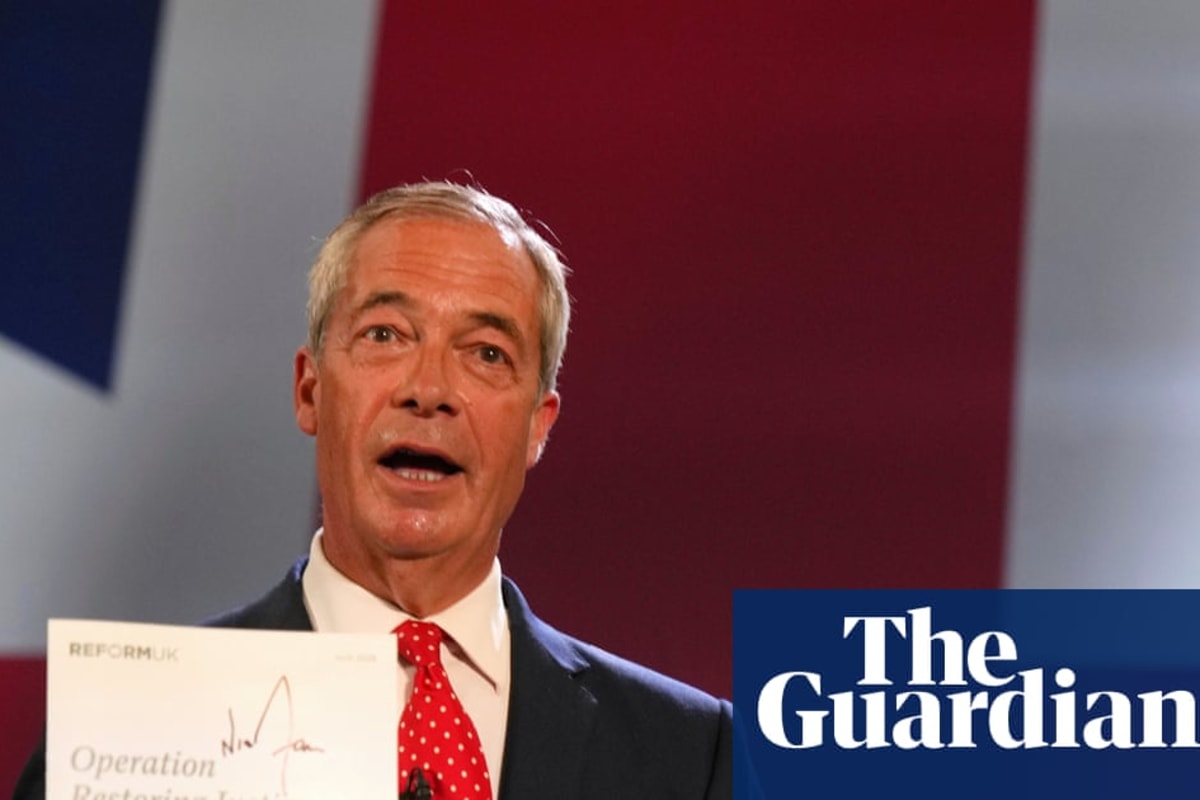Labour's Challenge: Can Starmer Outmaneuver Farage's Reform Surge?

Parliament's return from the summer recess marks a pivotal moment in the UK's political trajectory.
The unexpected surge in popularity of Reform UK, under the leadership of Nigel Farage, dominates the headlines Despite holding only a handful of parliamentary seats, Reform UK appears to have capitalized on the summer months to consolidate its position, presenting a formidable challenge to Labour leader Keir Starmer Starmer now faces increasing pressure to articulate a clear and compelling vision for the nation and effectively counter Reform UK's growing momentum Reform UK's aggressive summer campaign, characterized by frequent press conferences and outspoken public statements, has demonstrably resonated with segments of the electorate Recent polling data suggests a significant shift in public sentiment, driven by widespread dissatisfaction with the established political parties Sources within Reform UK suggest their success is rooted in appealing to voters who feel left behind by the mainstream For Southeast Asian readers, this rise of a populist, Eurosceptic party might echo similar political undercurrents in their own region, where anti-establishment feelings, anxieties surrounding economic inequality, and concerns about globalization can fuel the ascent of unconventional political forces It highlights a global trend of political disruption and voter disillusionment The ascent of Reform UK underscores the urgent need for Labour to effectively address the underlying anxieties driving voter support for the party A clear and persuasive message that speaks directly to these concerns is crucial for Labour to regain lost ground and re-establish its connection with disillusioned voters This necessitates a nuanced approach that acknowledges public frustrations while offering concrete and credible solutions Simply dismissing Reform UK's policies will likely prove insufficient; a proactive strategy outlining compelling alternative policy proposals, backed by detailed costings and realistic implementation plans, is imperative Labour will also need to address the perceived lack of clarity surrounding their Brexit stance, an area where Reform UK has found considerable support Beyond the domestic political arena, the international landscape exerts a significant influence on the UK's political climate The recent devastating earthquake in Afghanistan, which tragically resulted in hundreds of casualties, demands a robust global response and may influence public opinion regarding humanitarian aid and foreign policy commitments The escalating conflict in Israel and Gaza adds further complexity to the situation, potentially overshadowing domestic issues depending on the severity and duration of the crisis This ongoing conflict has also sparked debate within the UK about foreign policy priorities and the government's response For Southeast Asia, these global events hold considerable relevance, as the region frequently grapples with its own geopolitical challenges and maintains a vested interest in regional stability and international humanitarian efforts The UK's role in addressing these crises will undoubtedly be scrutinized The controversies surrounding Business and Trade Secretary Kemi Badenoch's educational claims further complicate the political landscape The allegations, which she has denied, contribute to a sense of uncertainty and potentially erode public trust in political figures These internal disputes within the Conservative party provide Labour with an opportunity to capitalize, emphasizing the need for greater transparency and accountability in government Political analysts suggest that such controversies, particularly those concerning integrity, can significantly impact voter confidence Furthermore, the incident at the recent anti-immigration protest in London underscores the complexities of addressing deeply rooted social and political divisions The alleged assault on a police officer highlights the potential for such protests to escalate and underscores the critical importance of fostering constructive dialogue and finding peaceful solutions to manage public discontent In the Southeast Asian context, issues of immigration and national identity are often complex and sensitive, making this aspect of the news particularly relevant and highlighting the common challenges faced by multicultural societies around the world The UK government's response to these protests will be closely watched Finally, the recent breakthrough in heart disease treatment offers a welcome ray of hope, showcasing the transformative potential of medical innovation to improve global health outcomes This positive development provides a refreshing contrast to the predominantly negative news cycle and serves as a powerful reminder of the areas where international collaboration can yield significant positive results, underscoring the importance of continued investment in scientific research and development The potential impact of this breakthrough on public health systems worldwide is substantial In conclusion, the UK's political landscape remains dynamic and fraught with uncertainty Labour faces a significant challenge in countering the surge in support for Reform UK while simultaneously navigating complex global events and internal controversies Effective communication, a clearly defined policy platform that resonates with a broad spectrum of voters, and a responsive approach to addressing legitimate public concerns are vital for Labour's success Understanding the global context, particularly the anxieties and aspirations of the electorate, will be crucial for all political parties as they navigate this critical period The rise of Reform UK and the complexities of the current international situation highlight the need for a nuanced, adaptable, and forward-thinking approach to political strategy, not only in the UK but also in regions like Southeast Asia that face similar challenges The coming months will be crucial in shaping the future of British politics
